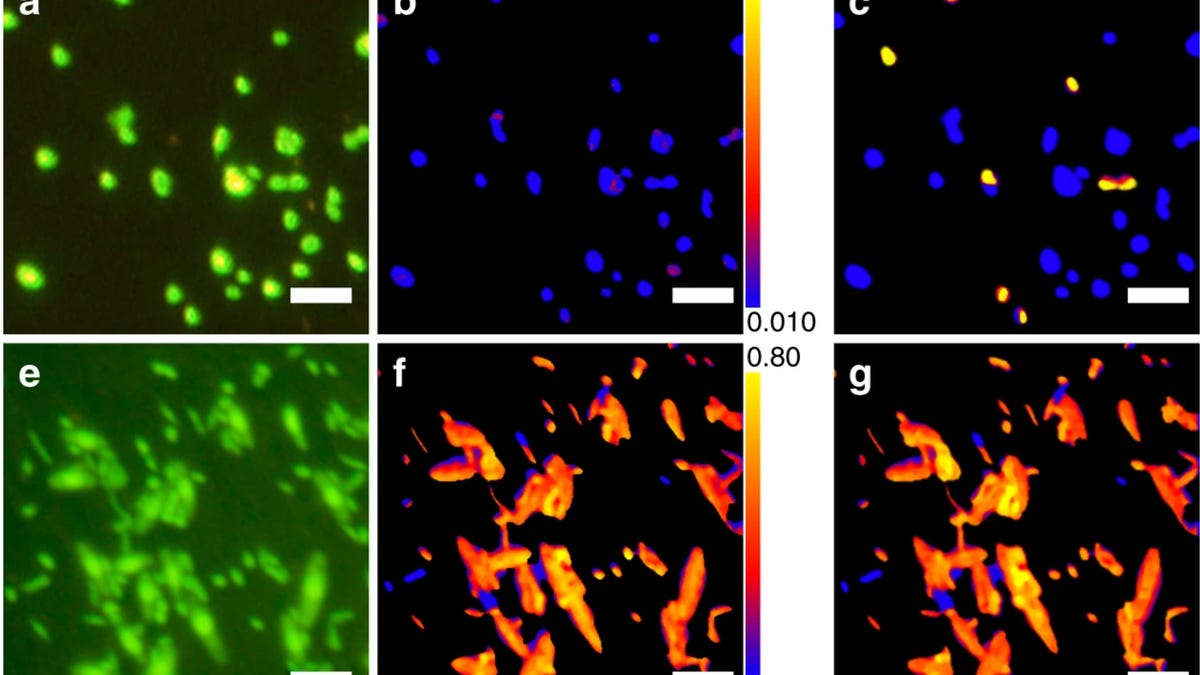100 million-year-old life forms found on the ocean floor
They could be the oldest known organisms on planet earth.

Cells found in the sediment.
If a human being is lucky it can survive for... maybe 100 years? Jonathan, an 183-year-old Aldabra giant tortoise currently residing in St. Helena is currently the world's oldest living land mammal.
But microbes have got us all beat. By a massive margin. Scientists recently retrieved microbes, from sediment found at the bottom of the South Pacific ocean, that are over 100 million-years-old.
These very-much-alive microbes are older than some dinosaurs.
Found in clay samples by folks aboard the JOIDES Resolution research ship, the microbes survived almost 80 metres beneath the sea floor, underneath an astonishing 5.7 kilometres (3.5 miles) of water.
After retrieving the microbes from the sediment, Dr Yuki Morono from the Japan Agency for Marine-Earth Science and Technology incubated the microbes for a year and half. The microbes initially contained ten different major types of bacteria, but during incubation, they grew and diversified.
The organisms the team isolated require oxygen to survive, and traces of the life-giving gas were found in the sediment. Even so, with no access to sunlight or any type of nutrient, the survival of microbes on the ocean floor is astonishing.
For scientists, the microbes' ability to survive in ancient, energy poor environments is the most interesting part of the find.
"The most exciting part of this study is that it basically shows that there is no limit to life in the old sediments of Earth's oceans," Steven D'Hondt, co-author of the study, told the ABC.
Life... uh, finds a way.

